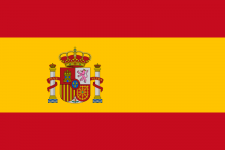
This project offered a safe, community-based space to refugees in which they could share and acknowledge their migration 'stories', with the goal of enhancing their positive mental health and well-being. Using a bottom-up approach, the project empowered participants to play an active and meaningful role as agents of change in their own growth and that of their community.
Project Goal
The adverse experiences lived by forced migrants during the pre‐migration, transit, and destination phases pose significant challenges to their mental health. This intervention aimed to promote positive mental health - specifically, post-traumatic growth (PTG) - among refugees in places of settlement, through a community‐based approach.
How it works
Project structure
The project consists of 2 main phases. During the first phase, the sessions follow a peer-support group format and are facilitated by a researcher or professional who aims to train settled refugees as mentors. The first 12 sessions (6 weeks) are designed to acknowledge the types of mourning participants experienced after trauma, identify personal strengths, and share community resources.
All 12 sessions follow a similar structure, based on (a) guided relaxation, (b) individual reflection or activity about a question or task-stimulus related to the session content, (c) sharing of migration stories based on the previous individual reflection or activity, and (d) presentation of community resources related to session content. The following 4 sessions (2 weeks) are destined to offer future mentors clear mentoring guidelines that can help them during the implementation of the second phase (e.g., the process of group revitalisation, leadership, or the creation of material adapted to each cultural group, among others).
During the second phase, designed to 'accompany' a group of newly arrived refugees, the sessions follow a peer-mentoring format facilitated by one or a pair of settled refugees, previously trained as mentors in the project's first phase. During these sessions, mentors recreate in their native language the previously received 12 peer-support sessions. During the final week, the project finishes with a closing ceremony involving all participants (i.e., researchers, community-partner professionals, mentors, and newly arrived refugees). During this event, awards are given to refugees (e.g., certificates; letters of recommendation) and an intercultural luncheon is held.
Participant selection
Mentor selection criteria include:
- residing in the receiving country for at least one year;
- being proficient in the dominant language of the receiving country;
- having leadership skills and a high degree of social awareness that enables them to help others in a situation of vulnerability (e.g., experience leading groups, volunteering in social projects).
Newly arrived refugee selection criteria include:
- residing in the receiving country for less than six months;
- having their basic needs covered;
- lacking a social support network and/or showing little knowledge of the main community resources available in the receiving society.
Results
Through peer-mentoring and peer-support-group methods, individuals learn to identify their strengths, value their post-arrival achievements, and develop a positive perspective on their migration journey. This process PTG—an indicator of mental health—among refugees in receiving societies.
Beyond its effectiveness, the implementation outcomes revealed high levels of acceptability, appropriateness, and feasibility. Participants perceived the intervention as satisfactory, useful, tailored to their needs and values, and easily implementable.
Evaluation
Project evaluation utilised a mixed-method approach. Participants completed the ‘Posttraumatic Growth Inventory’ (PTGI; Tedeschi & Calhoun, 1996) before and immediately after intervention. Additionally, participants’ 'narratives' were analysed by means of the following sources of information:
- transcripts of all 12 peer‐support group sessions during the first phase;
- participants’ written assessment based on 7 open‐ended questions at the close of first‐ and second- phase sessions;
- mentors’ written assessment of the changes they perceive in the participants midway and at the end of phase two;
- comments shared in a WhatsApp group comprising participants and research team members over the course of the intervention;
- the field notes a researcher took throughout the project.
The results of the implementation of the project suggest that it is a useful way to increase the PTG of refugees in receiving societies. Quantitative and qualitative data collected in a pretest-posttest evaluation design show that refugees appreciated life more, felt stronger, developed a deep connection with others, and discovered new possibilities in their lives after participating in the project. Besides the increase in PTG, there is evidence that the involvement of mentors as key agents of change in the project increased their levels of resilience and empowerment, which are indicators of their positive and active adaptation in the receiving society.
Who benefits
The beneficiaries of the project are refugees and asylum seekers.
Funding and resources
This intervention is funded by grants from the Lafourcade Ponce Spanish Foundation for the Psychological Wellbeing (2017/INT) and from the Universidad de Sevilla's Office for Development Cooperation (2017/04/02).
About this good practice
- Project dates
- -
- Geographic area
- Spain
- City
- Seville, Andalusia
- Organisation
- Center for Community Research and Action at the University of Seville (CESPYD)
- Website
- Contact person
- Virginia Paloma, PhD.
- Position
- Associate Professor at the Department of Social Psychology, University of Seville. Coordinator of the Center for Community Research and Action at the University of Seville (CESPYD)
Details
- Posted by
